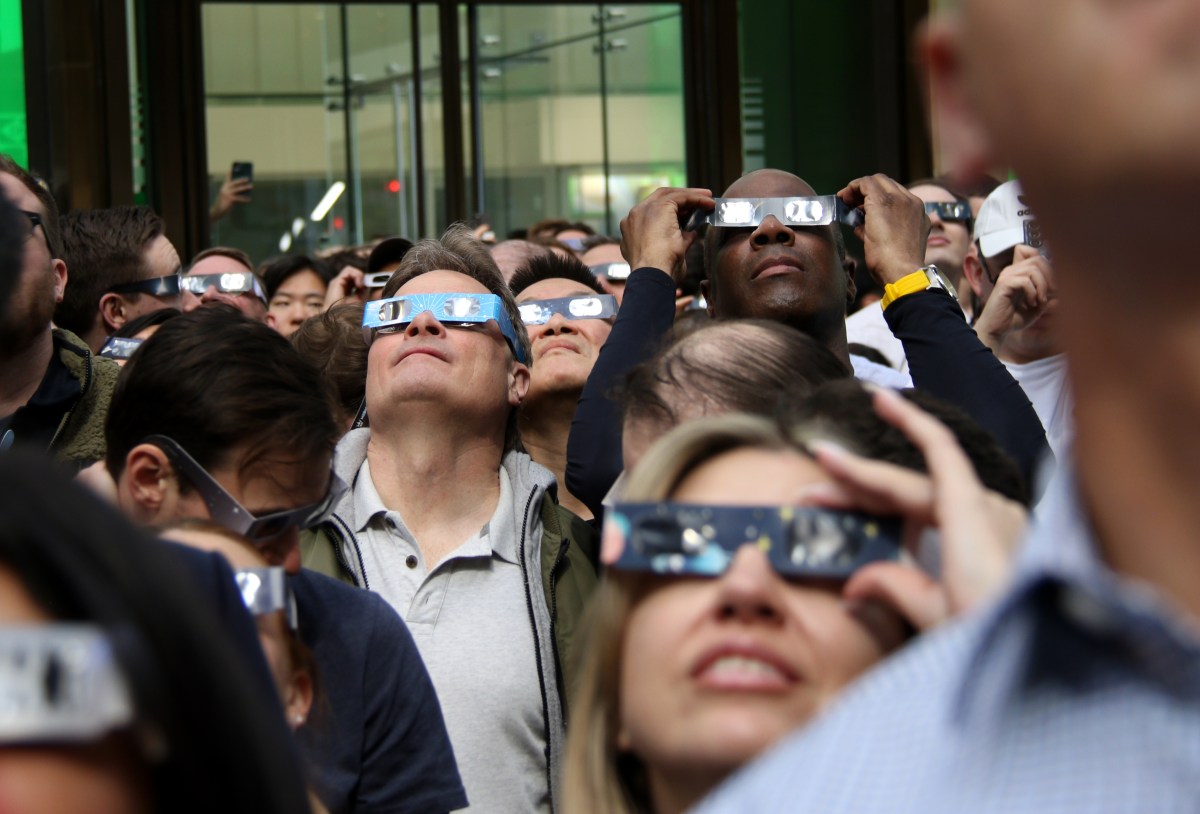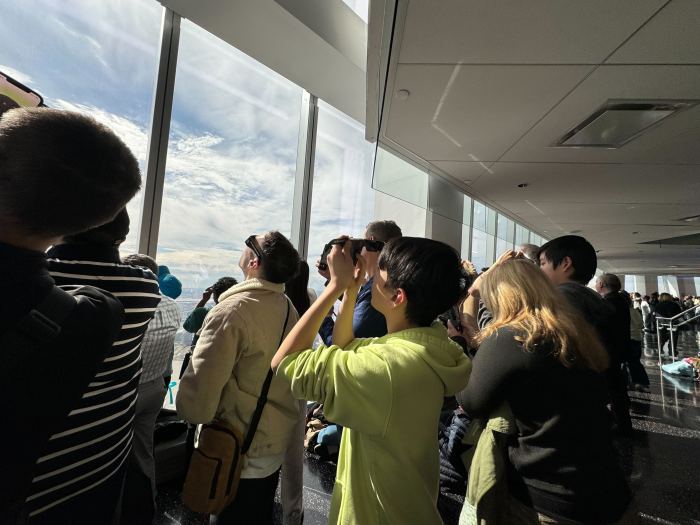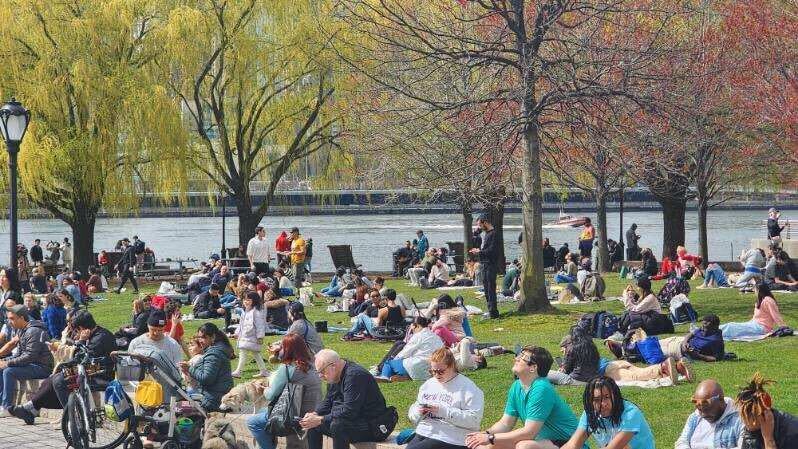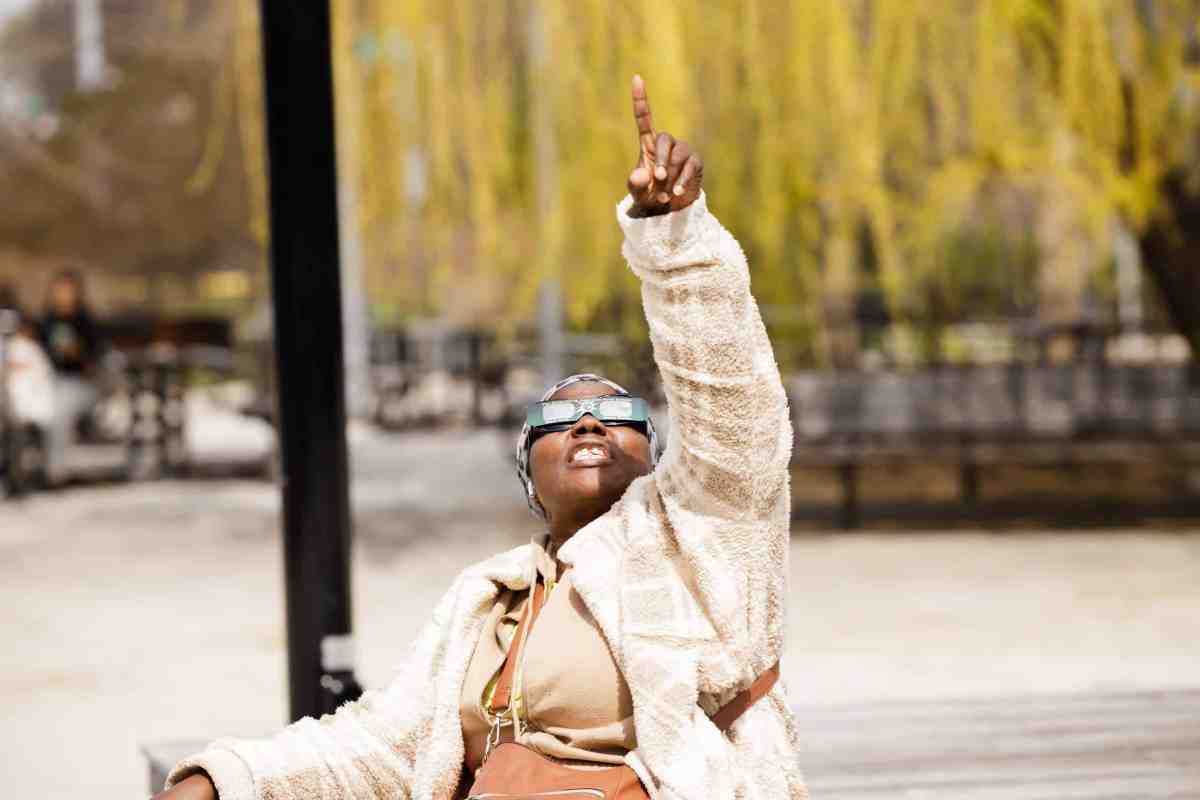New York City hospitals say they have not seen an uptick in patients reporting eye problems following Monday’s near-total solar eclipse, even as people across the country seemingly worry they may have damaged their retinas.
A spokesperson for New York City Health & Hospitals, the city’s public hospital system overseeing 11 hospitals and various other clinics and programs, said that it has not experienced an uptick in visits related to eye complaints at its emergency departments in the 24 hours since the eclipse on Monday, which saw 90% of the Sun blocked by the Moon and drew thousands of spectators across the city to look up.
Spokespersons for private hospital systems across the city, including Mount Sinai, NewYork-Presbyterian, and Maimonides, all similarly reported that they have experienced no uptick in eye complaints, suggesting New Yorkers did their due diligence and refrained from glaring at the eclipse without proper eye protection.

Thousands of pairs of eclipse glasses were distributed for free throughout the city in the weeks leading up to the rare solar event, but many procrastinators still found themselves out of luck amid a last-minute frenzy to procure them.
Even a momentary glance directly at the sun is enough to cause potentially permanent damage to your eyes through something called solar retinopathy. The damage doesn’t result in pain and can go unnoticed for a considerable length of time, ultimately causing effects like blurry vision, headaches, dizziness, or a black spot in the middle of the field of vision.
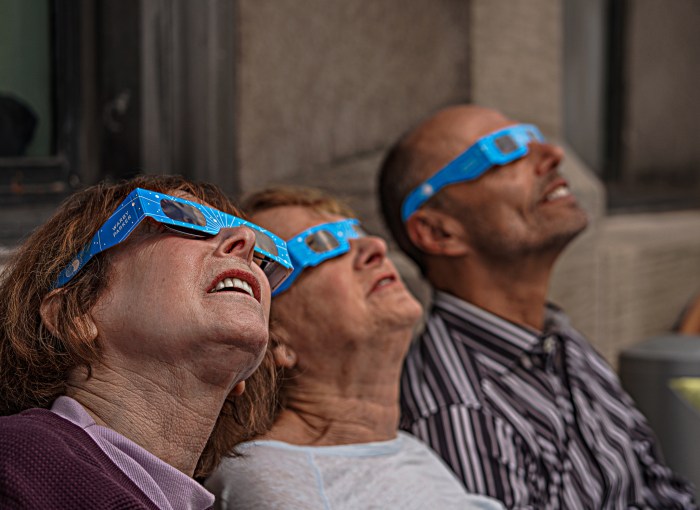
Only about 100 cases of eclipse-related retinopathy were recorded across the United States and Canada following the last total eclipse in 2017.
While hospitals have not been deluged, that doesn’t appear to have stopped the psychosomatic effects among the millions of Americans who watched the eclipse. Google searches for terms like “hurt eyes” and “safe to look at sun” skyrocketed in the hours following the eclipse, NBC News reported.
Read more: Midtown Hotel Stabbing Leaves Man Hospitalized with Lung Injury



